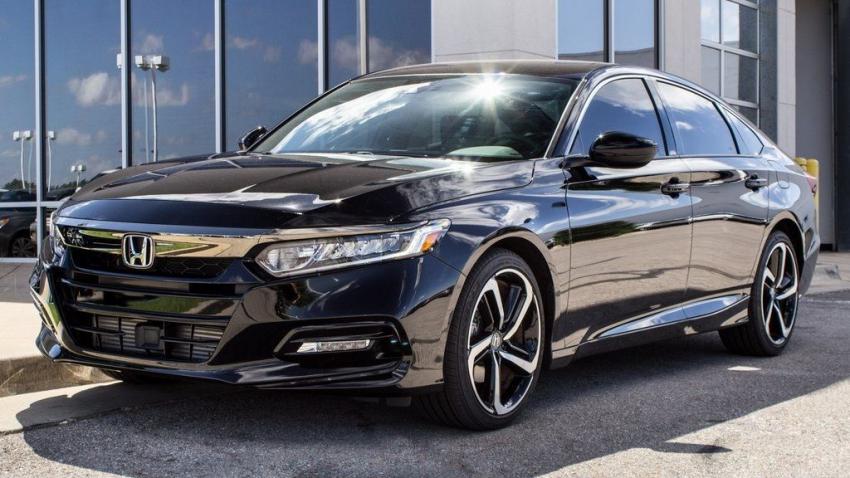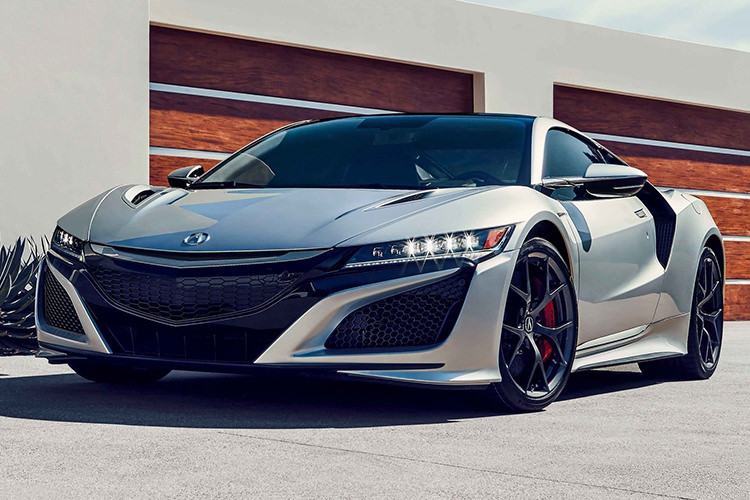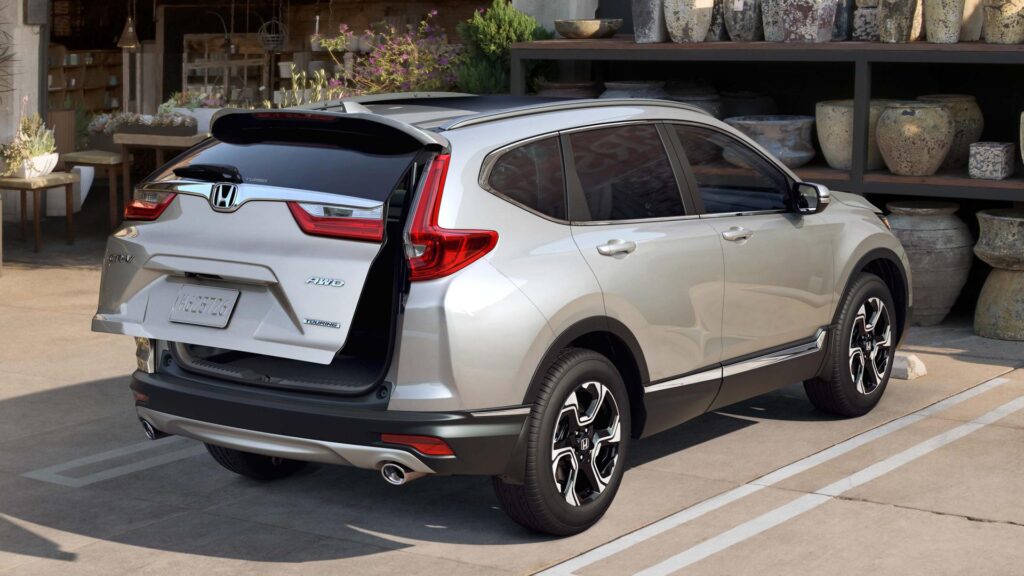Honda, officially known as Honda Motor Co., Ltd., is a renowned Japanese multinational corporation primarily known for its contributions to the automotive and motorcycle industries. Founded in 1946 by Soichiro Honda and Takeo Fujisawa, Honda has grown to become one of the world’s leading automobile manufacturers, known for its commitment to innovation, quality, and reliability.
Honda’s story began with Soichiro Honda, a visionary engineer, and Takeo Fujisawa, a skilled businessman. They started the company as a small venture to produce motorcycles in the post-World War II era. Their first motorcycle, the Honda Dream, was a success and laid the foundation for the company’s growth.While Honda initially focused on motorcycles, it expanded into the automobile market in the early 1960s. The Honda S500, introduced in 1963, was the company’s first mass-produced car. Since then, Honda has developed a wide range of vehicles, from compact cars like the Civic and Fit to larger models like the Accord and CR-V.
Honda is known for its innovative engineering and commitment to developing advanced technologies. It was one of the first automakers to introduce hybrid technology with the Honda Insight in 1999. The company’s ongoing pursuit of fuel efficiency and environmental sustainability has resulted in various hybrid and electric vehicle models.Honda has built a strong reputation for producing reliable and durable vehicles. This reliability is a key factor in the brand’s popularity and long-term success. Many Honda owners have found their vehicles to be dependable and low-maintenance.
Honda has a rich history in motorsport, participating in Formula 1, IndyCar, and other racing events. The company’s engines have powered many successful racing teams and drivers, contributing to its reputation for high-performance technology.Honda has made efforts to reduce its environmental footprint. In addition to its hybrid and electric vehicle offerings, Honda has been working on hydrogen fuel cell technology, which offers a zero-emission alternative to traditional gasoline-powered vehicles.
In addition to automobiles, Honda remains a major player in the motorcycle industry. They produce a wide range of motorcycles, from small scooters to powerful sports bikes. The company also manufactures power equipment such as generators, lawnmowers, and outboard motors.
Honda is a global company with a significant presence in various markets worldwide. It operates manufacturing facilities in different countries, and its vehicles are sold and well-received in many regions.
Honda invests heavily in research and development to stay at the forefront of automotive technology. This includes exploring autonomous driving features, artificial intelligence, and connected vehicle systems.

History of Honda Automobile Company:
The history of Honda as an automobile company is a fascinating journey of innovation, perseverance, and growth. Here is a chronological overview of the key milestones in the history of Honda’s automotive division:
1946: The Founding of Honda Motor Co., Ltd.
- Soichiro Honda, a skilled engineer, and Takeo Fujisawa, a successful businessman, founded Honda Motor Co., Ltd. The company initially focused on producing motorized bicycles.
1949: Introduction of the Honda Dream D-Type
- In 1949, Honda introduced the Dream D-Type, its first complete motorcycle. This marked the company’s first step into the world of motorized vehicles.
1963: Entry into the Automobile Market
- Honda produced its first mass-produced car, the Honda S500, a compact sports car with a 531 cc engine. This marked Honda’s official entry into the automobile market.
1970: Introduction of the Honda Civic
- The Honda Civic, introduced in 1972, became a pivotal model for Honda. It was a compact, fuel-efficient, and reliable car that played a significant role in establishing Honda’s reputation for quality and fuel efficiency.
1976: Honda Accord
- The Honda Accord was introduced as a larger and more upscale alternative to the Civic. It quickly gained popularity and became one of Honda’s best-selling models, known for its quality and dependability.
1983: Introduction of the First Honda CR-X
- The Honda CR-X was a sporty and compact car that garnered attention for its innovative design and fuel efficiency. It set the stage for future sporty Honda models.
1989: Honda NSX (Acura NSX in the U.S.)
- The Honda NSX was a groundbreaking sports car, known for its advanced technology and performance. It was a significant departure from Honda’s previous offerings and showcased the company’s engineering capabilities.
1997: Launch of the Honda Insight
- The Honda Insight was the first hybrid car to be sold in the United States and the first gas-electric hybrid vehicle. It demonstrated Honda’s commitment to environmental sustainability.
2000s: Expansion of Hybrid Technology
- Honda continued to develop hybrid technology with models like the Honda Civic Hybrid and the Honda Accord Hybrid, emphasizing fuel efficiency and reduced emissions.
2009: Introduction of the Honda Fit EV
- The Honda Fit EV was the company’s first fully electric vehicle, demonstrating Honda’s commitment to electric mobility.
2010s: Expansion of Alternative Fuel Technologies
- Honda expanded its focus on alternative fuels with hydrogen fuel cell technology, leading to the introduction of the Honda Clarity Fuel Cell and Clarity Electric.
2020s: Advancements in Electric and Autonomous Vehicles
- Honda continued to invest in electric vehicles (EVs) and autonomous driving technology, aiming to keep up with the changing automotive landscape and environmental concerns.

Some models of the Honda car company:
Honda has produced a wide range of car models over the years, catering to various segments of the automotive market. Here are some of the notable Honda car models:
- Honda Civic: The Honda Civic is one of Honda’s most iconic and popular models. It comes in various body styles, including sedan, coupe, and hatchback, and is known for its reliability, fuel efficiency, and affordability.
- Honda Accord: The Honda Accord is a midsize sedan that has gained a reputation for its comfort, performance, and safety features. It has been a best-seller in its class for many years.
- Honda Fit (Jazz): The Honda Fit, known as the Honda Jazz in some markets, is a subcompact hatchback that offers impressive interior space and versatility for its size.
- Honda CR-V: The Honda CR-V is a compact crossover SUV that is renowned for its practicality, spacious interior, and strong safety features. It’s a popular choice for families.
- Honda HR-V: The Honda HR-V is a subcompact SUV that combines the practicality of an SUV with the efficiency of a smaller vehicle. It’s known for its flexibility and interior space.
- Honda Pilot: The Honda Pilot is a midsize SUV with three-row seating, making it suitable for larger families. It offers a comfortable ride and a range of family-friendly features.
- Honda Odyssey: The Honda Odyssey is a minivan designed for families, known for its spacious and versatile interior, as well as advanced safety features.
- Honda Insight: The Honda Insight is a hybrid sedan, emphasizing fuel efficiency and a comfortable ride. It was one of the first hybrid cars in the United States.
- Honda CR-Z: The Honda CR-Z was a sporty hybrid car that combined fuel efficiency with a sporty design. It was in production from 2010 to 2016.
- Honda S2000: The Honda S2000 was a high-performance sports car known for its rev-happy engine and engaging driving experience. It was produced from 1999 to 2009.
- Honda NSX (Acura NSX in the U.S.): The Honda NSX (or Acura NSX) is a high-performance sports car with a history of innovative technology and a focus on precision and performance.
- Honda Clarity: The Honda Clarity is a lineup of alternative fuel vehicles, including a plug-in hybrid, an electric vehicle, and a hydrogen fuel cell vehicle, designed to meet diverse environmental needs.
- Honda Civic Type R: The Civic Type R is a high-performance version of the Civic known for its turbocharged engine, sport-tuned suspension, and aggressive styling.
- Honda Passport: The Honda Passport is a midsize crossover SUV with a rugged design, suitable for outdoor adventures and off-road excursions.
These are just a selection of Honda’s car models, and the company continues to innovate and expand its lineup to meet the evolving demands of the automotive market. Whether you’re looking for a compact, efficient car, a family-friendly SUV, or a high-performance sports car, Honda has a model to suit a variety of preferences and needs.

Some of the challenges faced by Honda:
Some of the specific challenges that Honda has encountered in recent years include:
Supply Chain Disruptions: Natural disasters, such as earthquakes and floods, in Japan have disrupted Honda’s supply chain, impacting its ability to produce vehicles and parts. These disruptions can lead to production delays and increased costs.
Currency Exchange Rate Fluctuations: As a global company, Honda is vulnerable to fluctuations in currency exchange rates. Changes in currency values can impact the cost of exporting and importing vehicles and components, affecting profitability.
Environmental Regulations: Meeting increasingly stringent environmental regulations, particularly in terms of emissions and fuel efficiency standards, has required substantial investment in research and development to develop cleaner and more efficient technologies.
Competition: The automotive industry is highly competitive, and Honda faces stiff competition from other automakers. Staying ahead of competitors in terms of innovation, design, and pricing is an ongoing challenge.
Shift Towards Electric and Autonomous Vehicles: As the automotive industry shifts towards electric vehicles (EVs) and autonomous driving technologies, Honda has had to accelerate its efforts in these areas to keep pace with consumer demand and industry trends.
Quality Control and Recalls: Honda, like many automakers, has faced quality control issues and recalls. Ensuring the safety and reliability of its vehicles is a top priority, and addressing any quality control issues is crucial.
Global Economic Conditions: Economic downturns and fluctuations in consumer demand, such as those seen during the 2008 financial crisis, can affect Honda’s sales and profitability.
Changing Consumer Preferences: Honda must adapt to changing consumer preferences, including a growing interest in eco-friendly vehicles, connectivity features, and mobility services.
Market Access and Trade Barriers: Access to certain markets and trade barriers can present challenges for Honda’s global expansion and trade activities.
Global Pandemics: The COVID-19 pandemic disrupted the automotive industry, leading to factory shutdowns, supply chain interruptions, and changes in consumer behavior. This presented unique challenges for Honda and other automakers.
Labor Relations: Like many large companies, Honda has had to manage labor relations and negotiations with unions, which can impact production and labor costs.
Technological Advancements: Staying at the forefront of rapidly evolving automotive technologies, including electric and hydrogen fuel cell vehicles, as well as autonomous driving systems, is a significant challenge for Honda.
Despite these challenges, Honda’s long history and commitment to quality have allowed it to maintain a strong presence in the global automotive market.
The meaning and concept of the name and logo of Honda company:
he Honda logo and name have meaningful origins that reflect the company’s history and values:
- Logo: The Honda logo consists of the company name “HONDA” in capital letters, usually set in a bold and stylized font. The text is often enclosed within a red rectangle.
- Name: The name “Honda” is derived from the surname of the company’s co-founder, Soichiro Honda. Soichiro Honda was a visionary engineer and entrepreneur who played a crucial role in the establishment and success of the company.
The red rectangle that often encloses the name is believed to represent a “wing.” This “wing” symbolizes the brand’s commitment to progress, innovation, and a forward-looking approach. It embodies the spirit of Soichiro Honda’s vision to continually move forward and achieve new heights in technology and engineering.
The simplicity of the logo and the use of the founder’s name emphasize the company’s focus on its engineering and technological expertise. The name “Honda” has become synonymous with quality, innovation, and reliability in the automotive and motorcycle industries.
Conclusion:
In conclusion, Honda is a renowned and influential company in the automotive industry with a rich history and a strong reputation for quality, reliability, and innovation. As one of Japan’s leading automakers, Honda has made significant contributions to the world of automobiles, motorcycles, and power equipment. Here are some key points to summarize Honda as a company:
Legacy of Innovation: Honda has a history of pioneering innovative technologies, such as the VTEC engine, hybrid systems, and advanced safety features. This commitment to innovation has allowed Honda to stay competitive and relevant in the ever-evolving automotive landscape.
Strong Reputation for Reliability: Honda vehicles are known for their dependability and longevity, which has cultivated a loyal customer base. This reputation for quality and reliability has been central to Honda’s success.
Global Presence: Honda has a strong global presence, with manufacturing facilities, dealerships, and customers in various countries. Its ability to adapt to diverse markets and consumer preferences has contributed to its international success.
Commitment to Sustainability: Honda has made strides in environmentally friendly technologies, including hybrids, electric vehicles, and hydrogen fuel cell vehicles. The company’s dedication to sustainability aligns with evolving global concerns about emissions and climate change.
Diverse Product Lineup: Honda offers a wide range of vehicles, from compact and fuel-efficient models like the Civic to larger family-oriented SUVs like the CR-V and innovative hybrid options. This diversity allows Honda to cater to a broad spectrum of customer needs.
Challenges and Adaptation: Like any major corporation, Honda has faced various challenges, including supply chain disruptions, quality control issues, and changing market trends. However, the company has demonstrated an ability to adapt and overcome these challenges through innovation and strategic decisions.
Commitment to Mobility: Honda is not just an automaker but also a company dedicated to providing mobility solutions. This includes motorcycles, power equipment, and research into advanced mobility concepts, such as autonomous driving and connected vehicles.
Read this article: Toyota company

Leave a Reply